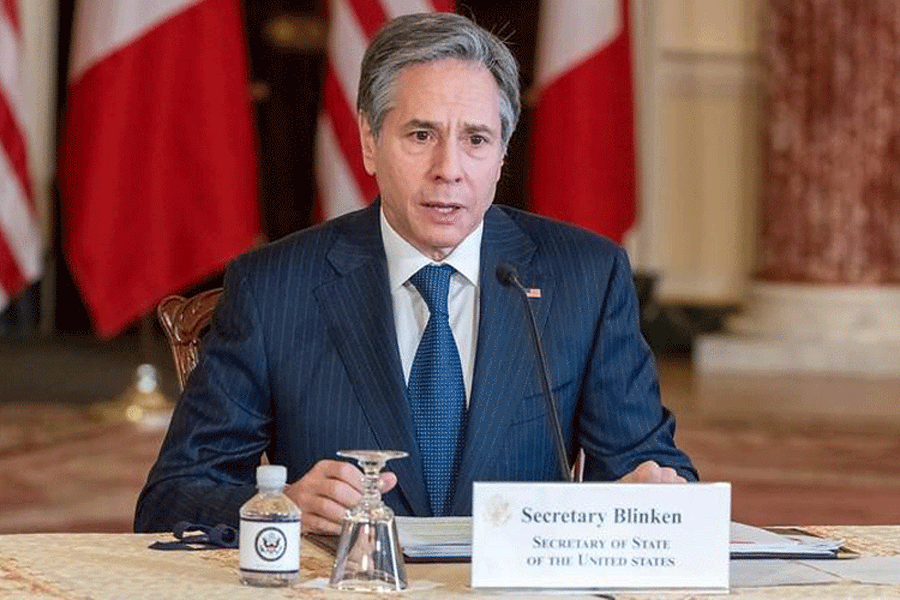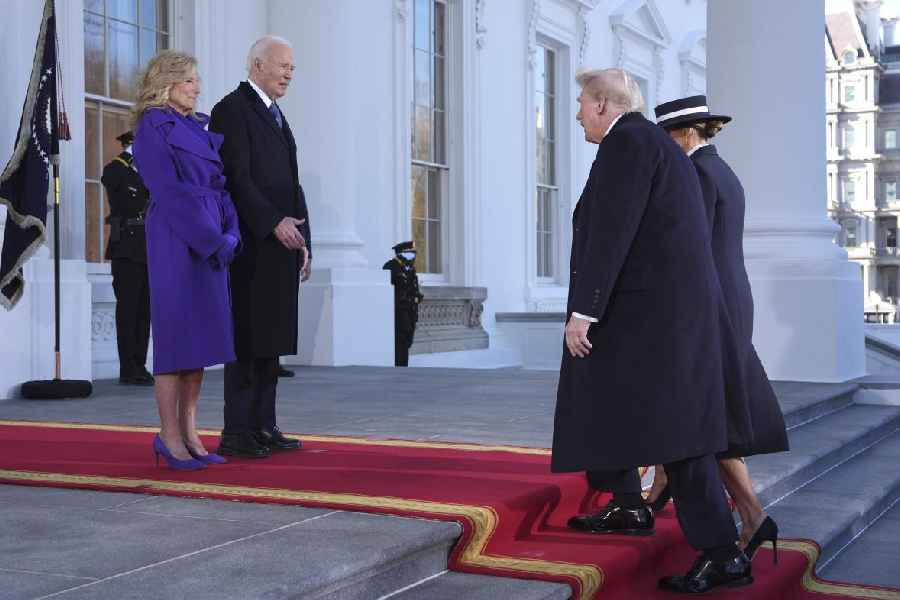The new Israeli settlements in the West Bank are illegal and inconsistent with international law, US Secretary of State Antony Blinken has said, reversing a Trump-era policy.
Blinken, at a joint press conference with the Argentine Foreign Minister Diana Mondino in Buenos Aires, said he was disappointed with Israel's latest plans for settlement expansion.
“We have seen the reports, and I have to say we’re disappointed in the announcement. It’s been long-standing US policy under Republican and Democratic administrations alike that new settlements are counterproductive to reaching an enduring peace,” Blinken said in response to a question.
“They’re also inconsistent with international law. Our administration maintains a firm opposition to settlement expansion. And in our judgement, this only weakens -- it doesn’t strengthen -- Israel’s security,” said the top American diplomat, a day after Israel’s far-right Finance Minister Bezalel Smotrich indicated that more than 3,000 new residences would be added to settlements.
The statement comes as the Biden administration's latest shift away from the pro-Israel policies pursued by former president Donald Trump.
The Trump administration reversed the US policy to declare that settlements did not violate international law. In 2019, under Trump, then-Secretary of State Mike Pompeo claimed that “the establishment of Israeli civilian settlements in the West Bank is not, per se, inconsistent with international law".
Blinken’s statement was defended by the White House in Washington DC.
“(We have) seen those reports and, frankly, disappointed in the announcement. It's been long-standing US policy under both Republican and Democratic administrations that new settlements are counterproductive to the cause of peace. Frankly, they're also inconsistent with international law. And this administration maintains our firm opposition to settlement expansion,” John Kirby, a White House spokesman, told reporters.
The New York Times reported that in November 2019, the then Secretary of State, Mike Pompeo, under then-president Donald Trump reversed four decades of US policy by saying that settlements did not violate international law.
“State Department lawyers never issued a new legal determination that buttressed that policy change and Mr. Blinken’s shift back to the old policy is consistent with a long-standing legal finding of the department,” the daily reported.
“We are simply reaffirming the fundamental conclusion that these settlements are inconsistent with international law. This is a position that has been consistent over a range of Republican and Democratic administrations. If there’s an administration that is being inconsistent, it was the previous one,” Kirby told reporters.
In Buenos Aires, Blinken said he had seen reports about the post-war Gaza plan.
“I haven’t seen the plan, so I want to reserve judgment until we see the details. Having said that, you know that there are certain basic principles that we set out many months ago that we feel are very important when it comes to Gaza’s future, including that it cannot be a platform for terrorism,” he said.
“There should be no Israeli reoccupation of Gaza. The size of Gaza’s territory should not be reduced. So, we want to make sure that any plan that emerges is consistent with those principles. There are other principles, but those are three of the most important ones,” Blinken said.
“At the same time, we have many countries in the region that are working together on a plan for post-conflict Gaza. I think that’s very important, and I’ve spent some time with some of our Arab partners, including recently on the margins of the G20, talking about just as we did when we were at the Munich Security Conference together. So, it’s important that we have, again, a necessary plan, but one also that’s consistent with basic principles that I think many countries share about what has to be Gaza’s future,” said the Secretary of State.
The reversal comes amidst growing US-Israeli tensions over the war in Gaza, with the latest settlement announcement only adding to the strain.
The United Nations' highest court, the International Court of Justice, is also holding hearings into the legality of the Israeli occupation.
Except for the headline, this story has not been edited by The Telegraph Online staff and has been published from a syndicated feed.












